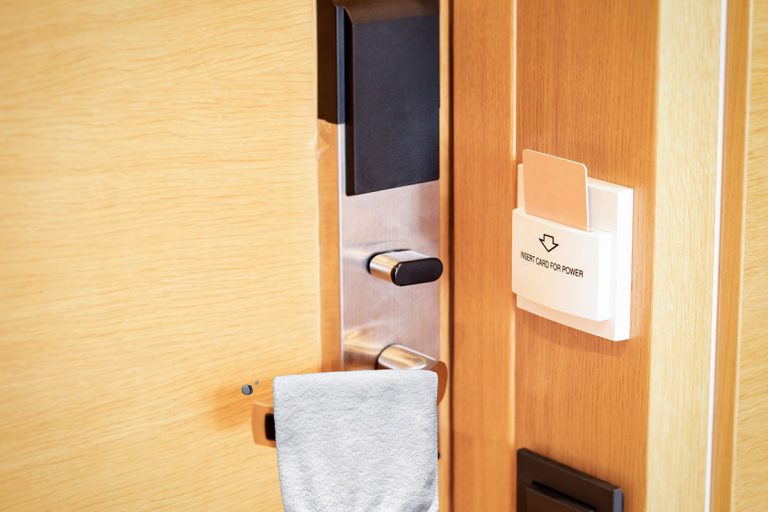Imagine swapping the mundanity of daily household chores with fresh sheets, room service, and an ever-present concierge at your disposal. That’s hotel living in a nutshell! You might be thinking, ‘but, how much does it cost to live in a hotel per month?’ If you’re short on time, here’s a quick answer to your question: It varies greatly, typically ranging between $1,500 to $10,000 per month, based on the hotel’s location, star rating, and the services provided.
This article aims to dissect these costs further, providing a detailed look at the factors influencing the expenses. We’ll go beyond just the room rent, diving deep into additional costs like meals, laundry, and potential hidden fees. Plus, we’ll explore strategies to make long-term hotel living more cost-effective.
Understanding the Basic Costs of Hotel Living
Living in a hotel can be an exciting and convenient option, whether you’re traveling for an extended period or in need of temporary accommodation. However, it’s important to understand the basic costs associated with hotel living to make an informed decision. Let’s delve into the key factors that contribute to the overall expenses.
Decoding Room Rates
Decoding room rates and understanding the basic costs of hotel living can sometimes be a bit complex due to the additional fees and charges that can be added on top of the base room rate. Here are some key factors to consider when looking at hotel room rates:
- Base Rate: This is the basic cost of the room per night, excluding any additional fees or taxes. The base rate often depends on factors like the type of room (e.g., standard, suite, etc.), the location of the hotel, the time of year, and the day of the week.
- Taxes: The price quoted for your room will likely not include taxes. These vary by location and can add a significant amount to the total cost of your stay. Common types of taxes include state and local sales taxes, occupancy taxes, and tourism taxes.
- Resort Fees: Many resorts and some hotels charge additional fees for amenities and services, such as Wi-Fi, gym access, parking, and pool use. These are often mandatory, even if you don’t use the services, and can significantly increase the cost of your stay.
- Wi-Fi Fees: While many hotels offer free Wi-Fi, some still charge for this service, particularly if you want a faster connection speed.
- Breakfast and Meal Costs: Some hotels include a complimentary breakfast in their room rate, while others may charge extra for it. Also, consider other meals you might have at the hotel’s restaurant or through room service. These costs can add up quickly.
- Mini Bar and Snack Fees: Many hotels stock rooms with mini-bars and snack trays, but these items are typically very expensive compared to their regular retail price.
- Pet Fees: If you’re traveling with a pet, check the hotel’s pet policy. Some hotels charge an additional fee for pets, or may require a deposit.
- Early Check-in/Late Check-out Fees: Hotels usually have set check-in and check-out times. Arriving early or leaving late may result in additional fees.
- Gratuities: Depending on the hotel and the country, gratuities may not be included in your bill. You might need to tip hotel staff such as bellmen, housekeepers, or room service attendants.
When booking a hotel room, it’s important to ask about all potential fees and charges. That way, you can avoid surprises and budget accurately for your stay. You can often find this information on the hotel’s website, or you can call the hotel directly to ask.
Facilities and Amenities: A Price Breakdown
Hotel facilities and amenities can greatly influence the price of a stay. Here’s a breakdown of some common hotel facilities and amenities, and how they might impact the cost:
- Pool/Spa: Access to a pool, hot tub, or spa services is usually included in more expensive hotels. Some hotels may charge additional for these amenities.
- Gym: Many hotels include access to a fitness center in their base price, but some might charge extra.
- Parking: Hotels in urban areas might charge for parking. The price can vary significantly depending on whether it’s outdoor, indoor, or valet parking.
- Shuttle Services: Some hotels offer free shuttle services to nearby airports, attractions, or city centers, which can save you transportation costs.
- Room Service: The convenience of room service is usually accompanied by a higher price tag, both for the food itself and additional service fees.
- Laundry Services: Some hotels offer laundry services for an additional fee.
- Concierge Services: Upscale hotels often provide concierge services to assist with reservations, tickets, and local recommendations.
Remember, not all amenities are worth the same to all people. Determine which amenities are important to you and consider those when comparing hotel prices. It can sometimes be cheaper to pay a slightly higher room rate at a hotel that includes free parking, breakfast, and WiFi, rather than paying less for the room but getting charged for these extras. Always check the details when booking.
Location-based Pricing
Location-based pricing, also known as geographic pricing, is a strategy used by businesses, including the hotel industry, where prices for goods or services change depending on the geographic location of the consumer. This strategy is driven by various factors:
- Cost of Living: Places with higher costs of living often have higher prices. This is because the costs to operate a business, like rent, utilities, and salaries, are typically higher in these areas. For example, a hotel room in a major city like New York is likely to cost more than a comparable room in a smaller, less expensive city.
- Supply and Demand: In areas where demand is high but supply is low, prices will typically be higher. For example, beachfront hotels can charge more because of the high demand for rooms with ocean views.
- Competition: In areas with a lot of competition, prices may be lower to attract customers. However, in areas with less competition, businesses can often charge more.
- Local Taxes and Regulations: Different areas have different tax rates and regulatory costs. If an area has high taxes or costly regulations, these costs will often be passed on to the consumer.
- Seasonal Demand: In areas that experience a lot of tourism during certain times of the year, prices may be higher during the peak tourist season and lower during the off-season.
- Economic Conditions: The general economic condition of a region can influence pricing. Areas with strong economies and high average incomes can often support higher prices.
- Transportation Costs: If a product needs to be shipped to the location where it’s sold, higher transportation costs can lead to higher prices. This is more relevant for physical goods than services.
While location-based pricing can result in consumers in different areas paying different prices for the same product or service, it’s a common and widely accepted business practice. As a consumer, it can be beneficial to understand these factors when planning purchases or travels.
Also Read:
Hidden Expenses and Additional Charges
Living in a hotel for an extended period may initially seem like a convenient and hassle-free solution. However, it is crucial to be aware of the potential hidden expenses and additional charges that can quickly add up. Understanding these costs beforehand can help you make an informed decision and avoid any unpleasant surprises. In this article, we will delve into some of the most common hidden expenses associated with living in a hotel per month.
Cost of Meals and Room Service
One of the significant advantages of staying in a hotel is the convenience of having meals prepared for you. However, this convenience often comes at a price. Hotel meals and room service can be quite expensive, especially if you rely on them for every meal. While it may be tempting to indulge in the convenience, it is worth considering alternative options such as cooking your meals or exploring nearby restaurants. By doing so, you can save a significant amount of money in the long run.
Laundry and Cleaning Fees
Another expense that is often overlooked when living in a hotel is laundry and cleaning fees. Most hotels charge for laundry services, and these costs can quickly accumulate over time. Additionally, if you require daily housekeeping or additional cleaning services, you may incur additional charges. It is essential to inquire about these fees upfront and consider alternative options such as using a nearby laundromat or hiring a local cleaning service to save on these expenses.
Internet and Phone Services
Access to the internet and phone services is essential for most individuals, especially when staying in a hotel for an extended period. However, some hotels may charge exorbitant fees for these services or provide unreliable connections. Before committing to a long-term stay, it is crucial to inquire about the cost and quality of internet and phone services provided by the hotel. Alternatively, you can consider using mobile hotspots or purchasing local SIM cards for more affordable and reliable connectivity.
Being aware of these hidden expenses and additional charges can help you budget effectively and make the most of your stay in a hotel per month. By planning ahead and exploring alternatives, you can minimize unnecessary costs and ensure a more financially sound experience.
Also Read:
Strategies for Cost-effective Hotel Living
Negotiating Rates for Long-term Stays
When it comes to living in a hotel for an extended period, negotiating rates can be a game-changer. Many hotels are willing to offer discounted rates for guests staying for a month or longer. Don’t be afraid to ask the hotel manager or front desk staff if they have any special rates for long-term stays. You’ll be surprised at how often they are willing to accommodate your request.
Additionally, consider joining hotel loyalty programs. These programs often provide exclusive benefits, such as discounted rates, free upgrades, and other perks for frequent guests. Take advantage of these offerings and save money on your monthly hotel expenses.
For more information on negotiating rates and finding the best deals, websites like Kayak and Hotels.com can be valuable resources.
Also Read:
Saving on Food and Laundry
One of the major costs associated with living in a hotel is dining out for every meal. However, there are several ways to save money on food expenses. Consider booking a hotel room with a kitchenette or at least a mini-fridge and microwave. This way, you can prepare simple meals in your room and avoid eating out all the time.
Another option is to take advantage of hotel breakfast buffets or happy hour specials that offer complimentary snacks and drinks. This can help you save money on meals, especially if these options are included in your room rate.
When it comes to laundry, using the hotel’s laundry services can quickly add up. Instead, look for nearby laundromats or consider handwashing your clothes in the bathroom sink. This may seem like a small effort, but it can significantly reduce your monthly expenses.
Opting for Package Deals
Package deals can be a great way to save money on your hotel stay. Many hotels offer special packages that include accommodations, meals, and activities. By bundling these services together, you can often get a better overall deal than if you were to pay for each item separately.
Additionally, consider booking your hotel stay during off-peak seasons or weekdays when prices tend to be lower. This way, you can take advantage of discounted rates and save even more money.
When searching for package deals, websites like Expedia and Booking.com offer a wide range of options and allow you to compare prices and amenities to find the best deal for your needs.
Living in a hotel per month doesn’t have to break the bank. By implementing these strategies, you can enjoy a cost-effective and comfortable stay while saving money in the long run. So go ahead and make the most of your hotel living experience!
The Financial Comparison: Hotel Living vs. Traditional Renting
When it comes to finding a place to live, there are various options available, including renting an apartment or living in a hotel. While traditional renting is the most common choice, hotel living is gaining popularity among certain demographics. In this article, we will compare the financial aspects of both living situations to help you make an informed decision.
Cost Comparison
One of the main factors to consider when deciding between hotel living and traditional renting is the cost. Traditional renting typically requires signing a lease agreement for a fixed period, usually 6 months or a year. The rent is paid monthly, and additional expenses such as utilities and maintenance may also apply. On the other hand, hotel living offers a more flexible payment structure. Instead of paying monthly rent, you pay a daily or weekly rate. This can be advantageous if you only need temporary accommodation or if you’re unsure about your long-term plans.
It is important to note that hotel rates can vary significantly depending on the location, amenities, and duration of stay. In some cases, hotel living can be more expensive than traditional renting. However, hotels often provide additional benefits such as daily housekeeping, access to amenities like swimming pools and fitness centers, and complimentary breakfast. These perks can offset the higher cost, providing a value proposition that traditional renting may not offer.
Read More: How To Get The Cheapest Hotel Rates: Tips And Tricks
Value Proposition of Both Living Situations
When considering the value proposition of hotel living versus traditional renting, it’s important to assess your specific needs and lifestyle. Traditional renting provides a sense of stability and the opportunity to create a home in a specific neighborhood. It allows for personalization and the ability to establish long-term relationships with neighbors. On the other hand, hotel living offers convenience and flexibility. You can easily move from one location to another without the hassle of finding a new rental property or dealing with lease agreements. This can be particularly beneficial for individuals who frequently travel for work or who are in a transitional phase of their lives.
Additionally, hotel living can be a great option for those who prioritize convenience and prefer not to deal with the responsibilities of maintaining a rental property. In a hotel, you don’t have to worry about repairs or maintenance issues, as the hotel staff takes care of these tasks for you. This can save you time and money in the long run.
The Flexibility Factor
Flexibility is a key advantage of hotel living. Whether you need temporary accommodation for a few weeks or several months, hotels can offer flexible booking options. You can easily extend or shorten your stay based on your needs. This flexibility can be particularly beneficial for individuals who are unsure about their long-term plans or who need temporary housing during a relocation or renovation.
Furthermore, hotel living allows you to experience different neighborhoods and cities without committing to a long-term lease. You can explore new areas, try out different amenities, and immerse yourself in different cultures. This can be a thrilling and enriching experience, especially for those who enjoy variety and adventure.
Conclusion
In essence, living in a hotel can be an exciting, albeit different, lifestyle choice. The monthly costs of hotel living can be substantial and vary significantly, depending primarily on the hotel’s location, amenities, and your personal requirements. It requires an understanding of all the potential costs, including some that may not be readily apparent. With strategic planning and smart decisions, however, it’s possible to make hotel living a cost-effective choice. This comprehensive guide aims to equip you with the necessary understanding of the costs and dynamics of hotel living. Whether you’re considering this option due to necessity or desire, armed with this knowledge, you can make an informed decision.






